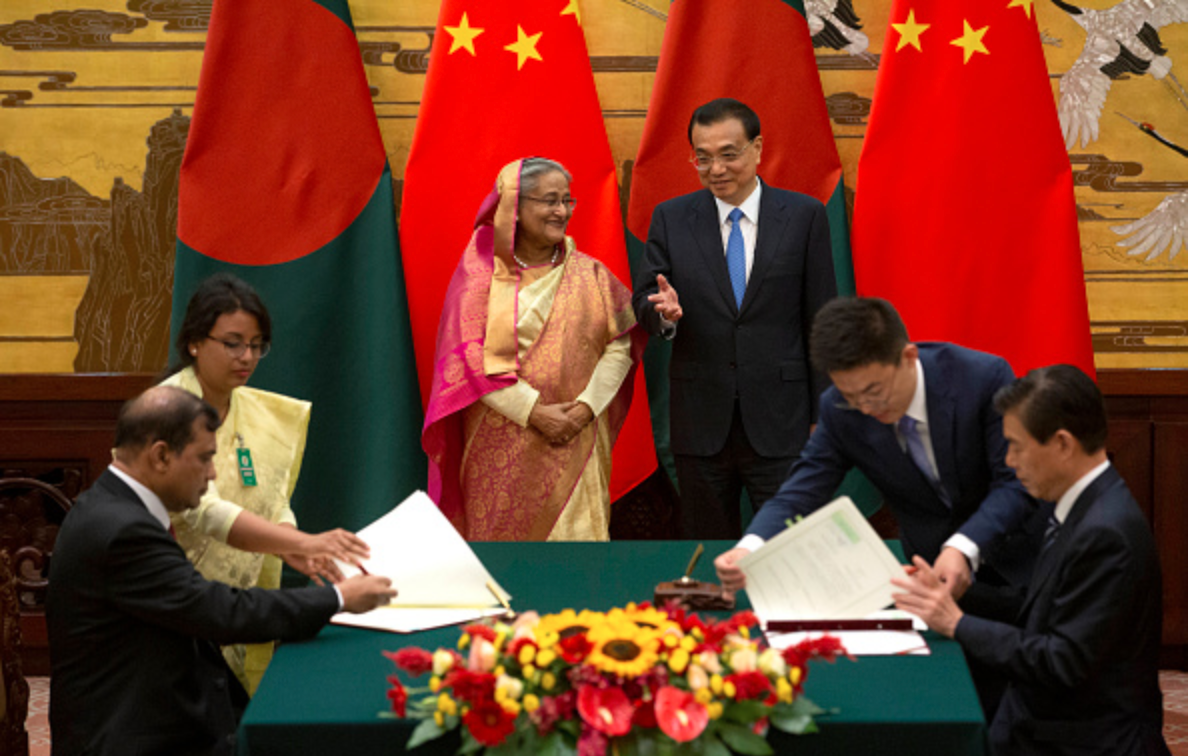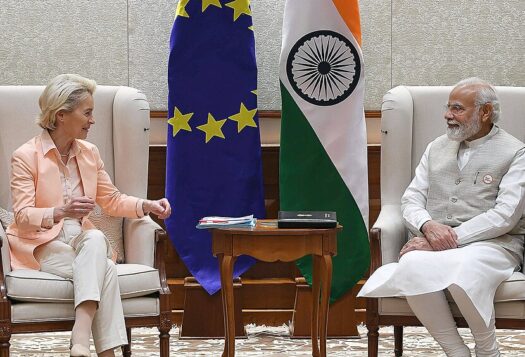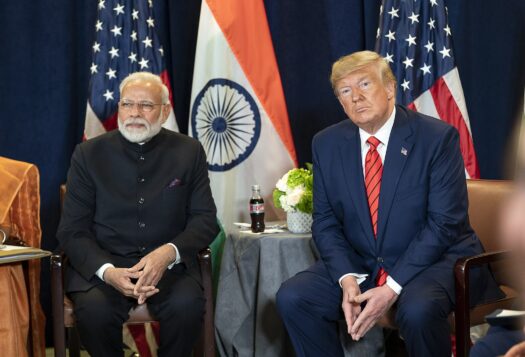
Introduction
Over the past five years, Bangladesh has witnessed a noteworthy transformation in its foreign relations, marked by a significant improvement in areas of economic and defense cooperation with China. Despite initial challenges, China-Bangladesh relations have strengthened considerably, driven by China’s policy of generous economic assistance and growing anti-India sentiment in Bangladesh. This burgeoning partnership enjoys considerable support within Bangladesh, both politically and among the general public.
Continuing this China in South Asia series that commenced in 2017, this article will discuss recent developments shaping Bangladesh’s relations with Beijing. Even though Dhaka’s recent Indo-Pacific outlook seems to underscore China’s ambition in the Indo-Pacific, Bangladesh’s growing tilt towards China stands out prominently. China’s unwavering support for the government has played a pivotal role in fostering this alignment. Concurrently, strained relations with the United States, largely stemming from the latter’s emphasis on democracy as Bangladesh is growing more authoritarian since 2014, have further propelled Bangladesh’s shift towards China.
While navigating these evolving geopolitical leanings, Bangladesh must also navigate the competing interests of other players like India and Russia. The complex geopolitical dynamics in the region highlight the intricate web of relationships that Bangladesh must manage. The choices made by Bangladesh during this period will have far-reaching implications for its development and security as all key stakeholders in the Indo-Pacific such as the United States, China, Russia, Japan, and India are major development partners for Bangladesh.
Despite initial challenges, China-Bangladesh relations have strengthened considerably, driven by China’s policy of generous economic assistance and growing anti-India sentiment in Bangladesh.
Deepening Economic Cooperation
Since 2017, Bangladesh has deepened its engagement with China. China has become Bangladesh’s largest trading partner, with Chinese investments expecting to exceed USD $40 billion. China has already invested around USD $9.75 billion in transportation projects in Bangladesh, including ongoing initiatives such as the Padma Bridge Rail Link, Bangabandhu Tunnel, and Dasher Kandi Sewerage Treatment Plant. These events have played a crucial role in fostering economic cooperation, infrastructure development, and overall bilateral relations between China and Bangladesh. Through cooperation with Bangladesh, Beijing has also expanded its footprint in the Indo-Pacific.
China has also emerged as the largest source of foreign direct investment (FDI) in Bangladesh, with a gross flow of USD $940 million in the fiscal year 2021-2022. It has also ranked as the top foreign investor in Bangladesh in 2022, with 104 investors operating in eight export-processing zones. Despite the challenges posed by the COVID-19 pandemic, bilateral trade between the two countries witnessed a remarkable increase of 58 percent in the previous year, reflecting the strong resilience of their trade relationship.
China’s implementation of duty-free facilities on Bangladeshi products has been a significant development in bilateral trade relations. Starting from July 1, 2020, China granted duty-free access to 97 percent of Bangladeshi products entering its market. This move aimed to promote trade between the two countries and boost economic cooperation. Subsequently, the coverage of duty-free facilities was further increased to 98 percent, indicating China’s commitment to enhancing trade relations and supporting the export-oriented industries of Bangladesh due to its geo-political ambitions. The duty-free access provided by China has been beneficial for Bangladesh, as it helps to reduce trade barriers and creates favorable conditions for the export of Bangladeshi goods to the Chinese market.

Stronger Defense Ties
Bangladesh’s military partnership with China has grown significantly and become more transparent over the past five years. Bangladesh has become China’s second-largest arms customer, accounting for about 17 percent of Chinese military exports from 2016 to 2020, following Pakistan. Defense cooperation between the two countries has deepened to include military personnel training in China and collaboration in defense production.
Despite previous issues with Chinese-supplied defense equipment, Bangladesh acquired submarines from China in 2016 to enhance its naval capabilities. In March 2023, Bangladesh Prime Minister Sheikh Hasina unveiled the country’s inaugural submarine base, named BNS Sheikh Hasina, in Cox’s Bazar. Constructed by China at a cost of USD $1.2 billion, the facility has the capacity to accommodate six submarines and several warships. Currently, two Chinese-made submarines are stationed at the base, representing a significant development in Bangladesh’s naval capabilities.
Defense analysts believe that Bangladesh’s increasing military partnership with China will not only strengthen Bangladesh but also put pressure on India. These analysts view China’s military engagements in Bangladesh, such as the potential missile facility, as a form of psychological warfare against India, which may lead to domestic political shifts and the rise of pro-China groups within Bangladesh. While the defense partnership is within their rights as sovereign states, some experts express concerns that China’s actions may cross a line and have implications for regional dynamics. Additionally, China has recently signed a contract to supply 23 Hongdu K-8W intermediate training jets to the Bangladesh Air Force, further bolstering their military cooperation.
Geopolitical Shifts Ahead
In the post-COVID period and during the Russia-Ukraine war, geopolitical tensions in the Indo-Pacific have also increased. Both China and the United States want Bangladesh’s direct involvement in their foreign policy outlook. The United States has invited Bangladesh to join its Indo-Pacific Strategy, a partner in the Indo-Pacific region. In response, China has warned that Bangladesh’s relations with China would be damaged if it joins the Quad, while also seeking Bangladesh’s participation in its Global Development Initiative and Global Security Initiative.
Russia also joins in the race with China to tackle U.S. influence in Bangladesh. The Russian Foreign Ministry accused the U.S. ambassador in Dhaka of persistently trying to influence the country’s domestic processes. The Russian embassy in Dhaka has also criticized the “hegemonic ambitions” of developed democracies, alleging interference in the internal affairs of nations that are not aligned with these powerful states. Russia’s statement goes against the United States’ engagement in Bangladesh, which ultimately favors the Chinese footprint in the country.
China has warned that Bangladesh’s relations with China would be damaged if it joins the Quad, while also seeking Bangladesh’s participation in its Global Development Initiative and Global Security Initiative.
Bangladesh’s shift towards China, coupled with concerns over its dismissal of democratic values and human rights, has strained its relationship with the United States. The international community has criticized the conduct of the 2014 and 2018 elections under the Awami League government. In response to human rights violations, the United States has imposed sanctions on the Rapid Action Battalion (RAB) and implemented visa restrictions on individuals undermining democratic processes. Exclusion from the Biden Democracy Summit indicates a change in U.S. policy towards Bangladesh. As such, Prime Minister Sheikh Hasina responded angrily that “[We don’t need to] take a 20-hour plane journey, cross the Atlantic, and go to America. There are many more oceans in the world, many continents. We will travel and make friends with that continent in the ocean.”
While the United States distances itself from the Awami League government, China is extending financial support and strengthening ties with Bangladesh. Furthermore, Bangladesh and Russia have reached an agreement to use the Chinese yuan for payment in a nuclear power plant project, which has raised objections from the United States. This dynamic reflects the evolving geopolitical interests and rivalries in the region, with different countries seeking influence and partnerships in Bangladesh.
Additionally, the Rohingya crisis in Bangladesh poses a significant challenge to China’s geopolitical interests in the region. A peaceful resolution to this crisis, led by China, could further solidify its influence and foothold in Bangladesh. Conversely, the United States has taken steps to address the crisis, including the declaration of the Burma Act to support the people of Myanmar, with implications for Rohingyas as well. These actions by the United States are likely to increase its presence and influence in Bangladesh. The resolution of the Rohingya crisis holds implications for the geopolitical dynamics in the region, impacting the interests of both China and the United States.
Thus, it appears that Bangladesh is tilting towards China due to China’s unconditional support to the Awami League government and the U.S. focus on democracy. Bangladesh’s shift towards China, strained relations with the United States, and competing interests from India and Russia highlight the complex geopolitical dynamics in the region. The choices made by Bangladesh in its alliances will have significant implications for its development and security.
Also Read: Bangladesh’s Indo-Pacific Outlook: Has Dhaka ‘Tilted Towards the West’?
***
Image 1: China-Bangladesh Diplomacy via Getty Images
Image 2: 4th China-Bangladesh Friendship Bridge via Wikimedia Commons


